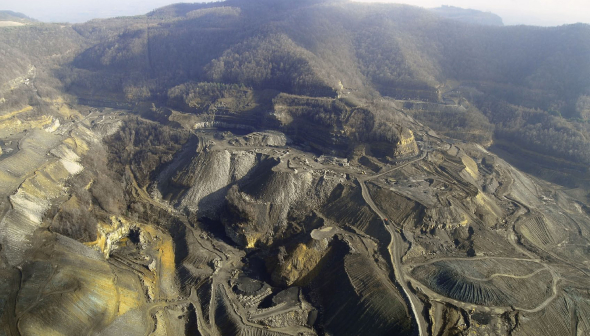
Humankind’s progressing destruction of nature undermines the survival of species, a group of previous foreign ministers has cautioned, approaching leaders to step once again from “the precipice” of irreversible ecological ruin and ensure the planet.
The planet’s quickly warming oceans must be the focal point of expanded preservation endeavors because of their significance in delivering oxygen and nourishment for billions of individuals, the previous ministers included, as governments get ready to start negotiations for a Paris-style UN agreement to nature one week from now.
In an announcement signed by 23 representatives – including previous US secretary of state Madeleine Albright and previous British foreign secretary Sir Malcolm Rifkind – world leaders are asked to back the draft UN agreement to ensure right around 33% of the world’s oceans and land.
Next week’s meeting in Rome – initially planned to happen in Kunming, China yet moved to the Italian capital in the wake of the coronavirus outbreak – will be the first run through governments officially respond to the 20-point proposition to end and invert biodiversity misfortune.
The present draft commits nations to ensure 30% of the planet, present controls on invasive species, and diminish contamination from plastic waste and overabundance supplements by half.
“The loss and degradation of nature jeopardize human health, livelihoods, safety, and prosperity. It disproportionately harms our poorest communities while undermining our ability to meet a broad range of targets set by the United Nations’ sustainable development goals. We must rise above politics and ideology to unite the global community around the urgent cause of protecting our planet and way of life,” reads the statement, which was released through non-profit thinktank Aspen Institute.
The previous ministers featured the atmosphere emergency, the “excessive exploitation” of natural resources, and environment debasement as grave dangers to international security, notice they “imperil the future for our grandchildren”.
“Humanity sits on the precipice of irreversible loss of biodiversity and a climate crisis that imperils the future for our grandchildren and generations to come. The world must act boldly, and it must act now,” the statement continues.
The remarks follow those by indigenous gatherings, researchers and business leaders in front of the gathering in Rome.
“The marine environment deserves special attention, as it covers 70% of our planet, and even people who live far inland depend on the ocean to produce half of the oxygen we breathe, to serve as the primary source of protein for over 3 billion people, and to help maintain a liveable climate,” the statement continues.
“In addition to protecting 30% of the ocean, we also call on nations of the world to manage the entirety of their ocean territories in a manner that is sustainable, equitable and integrated across sectors. This combination of protection and sustainable management will ensure the health and productivity of the global ocean on which we all depend.”
A month ago, the UN’s new biodiversity boss cautioned mankind will have “given up” on planet Earth if world leaders can’t agree this year to stop the mass elimination of wildlife and obliteration of life-supporting biological ecosystems.
When asked what not making a move would mean, Elizabeth Maruma Mrema, the acting official secretary of the UN Convention on Biological Diversity told: “The risks will be major. One is that we will not have listened to the science and the evidence provided. Because we will not have listened, it means the global community will have said: let biodiversity loss continue, let people continue to die, let the degradation continue, deforestation continues, pollution continues, and we’ll have given up as an international community to save the planet.
“I hope that’s not where any of us would want to be.”
Hannah Smith is a career Reporter for Herald Quest make it. She lives in Florida, After earning a Journalism and creative writing degree from the University of Florida, she working on Herald Quest covering Science and Environment. Hannah is also a former Press Association Science journalist. She developed some own news websites.
Disclaimer: The views, suggestions, and opinions expressed here are the sole responsibility of the experts. No Herald Quest journalist was involved in the writing and production of this article.